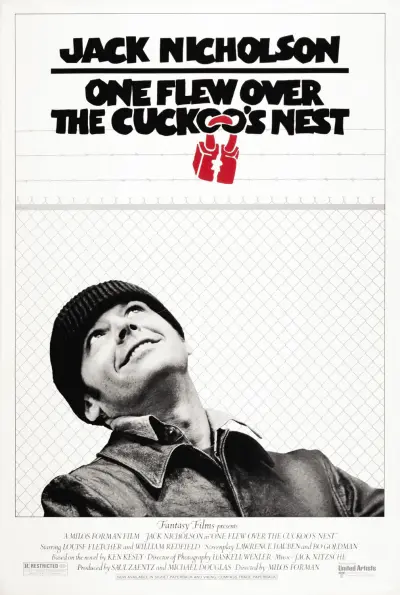
"One Flew Over the Cuckoo's Nest," released in 1975, is a film that has etched its name deeply in the annals of cinema. Directed by Milos Forman, this adaptation of Ken Kesey's novel is remarkable for its compelling narrative and profound thematic exploration. The film is elevated by Jack Nicholson's exceptional portrayal of Randle McMurphy, a character whose journey and actions drive the core of the story.
The plot is set in 1963 and revolves around Randle McMurphy, a 38-year-old with a history of criminal activities, including assault and statutory rape. Seeking an escape from the hard labor of an Oregon work farm, McMurphy feigns insanity, which leads to his transfer to a mental institution. This institution, ruled by Nurse Ratched, becomes a battleground of wills. Nurse Ratched represents a cold, passive-aggressive form of tyranny, exerting strict control over her patients, which becomes a central element in the unfolding drama.
The film features an ensemble of characters, each presenting unique psychological and emotional challenges. These include Billy Bibbit, who struggles with a stutter; Charlie Cheswick, known for his temper tantrums; Dale Harding, who is articulate yet emotionally repressed; and Chief Bromden, a tall, seemingly deaf-mute Native American. The interactions among these characters, particularly with McMurphy, form the heart of the narrative, painting a vivid picture of life within the institution.
A key theme in "One Flew Over the Cuckoo's Nest" is the tension between individual behavior and societal control. McMurphy's rebellious spirit stands in stark contrast to Nurse Ratched's oppressive desire for order. This conflict is highlighted when McMurphy orchestrates a series of defiant acts, such as a stolen bus trip for a fishing excursion. These acts serve not only as a form of resistance but also as a means for the patients to explore self-confidence and rediscover their autonomy. However, McMurphy's rebellion against the institutional system leads to unforeseen and severe consequences.
The film's climax is marked by a series of dramatic and tragic events following a covertly organized Christmas party by McMurphy. The aftermath of this party is catastrophic, leading to Billy Bibbit's suicide and a violent altercation between McMurphy and Nurse Ratched. This confrontation ultimately results in McMurphy's lobotomy. In the film's final act, Chief Bromden, who reveals his ability to speak and hear, makes a poignant decision. He smothers a lobotomized McMurphy, thus freeing him from his vegetative state, and subsequently breaks free from the institution—a symbolic act of liberation from an oppressive system.
In conclusion, "One Flew Over the Cuckoo's Nest" delves deeply into themes such as the struggle between individualism and authoritarian control, the concept of insanity, and the impact of repressive societal norms. With its rich symbolism and powerful performances, the film provides an insightful and moving examination of the human condition. Its enduring relevance and impact make it a quintessential work in American cinematic history.

